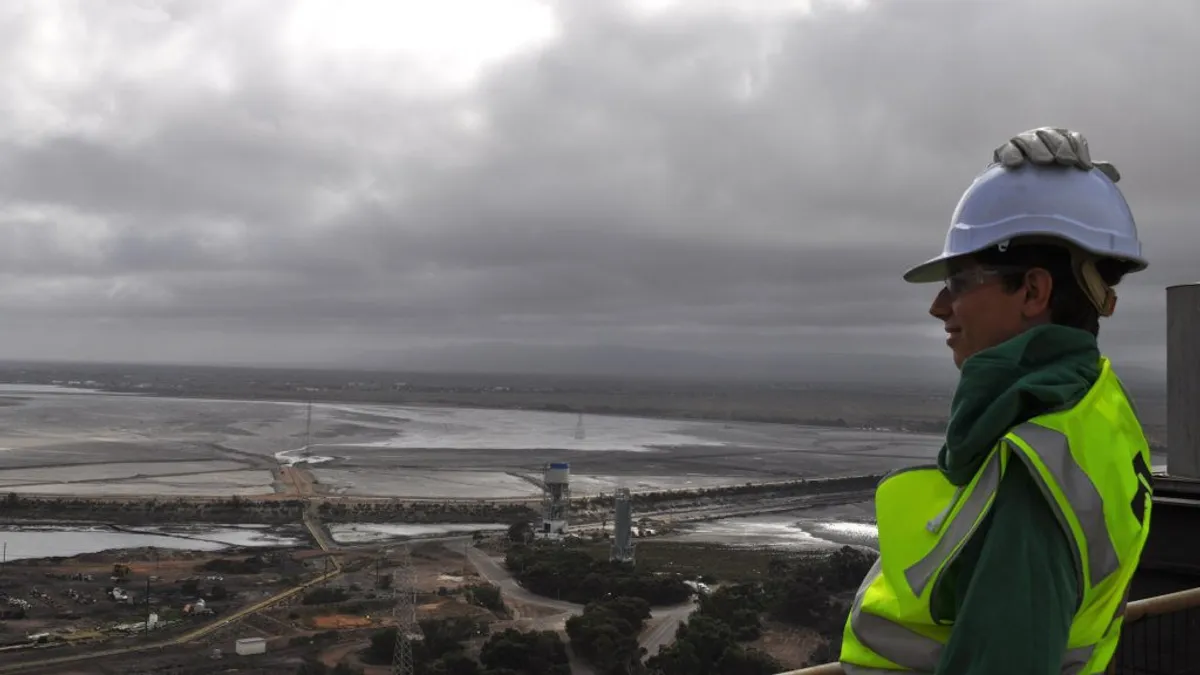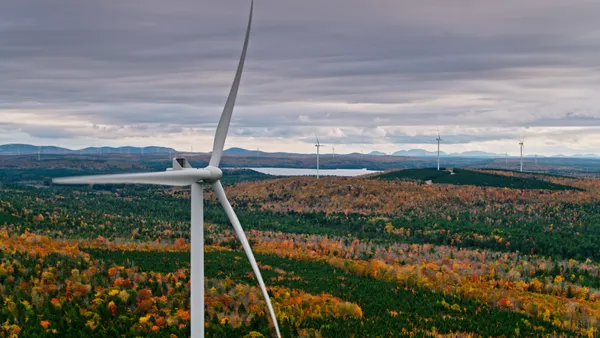Dive Brief:
- Virginia Gov. Terry McAuliffe (D) has requested amendments to Senate Bill 1398 that would require more detailed analysis of Dominion coal ash ponds before the state could issue permits to begin shutting them down.
- The amendment restores language that was removed from the bill as it worked its way through the legislature this year, according to a thorough explanation in the Richmond Times-Dispatch. The amendment would ensure the Department of Environmental Quality would not issue permits for closing the sites until May 18, 2018 or a date determined by the General Assembly.
- The measure would require Dominion to reconsider its approach to closing coal ash basins, putting recycling as a first option ahead of capping the waste in place.
Dive Insight:
The Times-Dispatch reports lawmakers will be reviewing the amendment for the next several days. If it stays, the amendment would place a temporary hold on the state permitting process for coal ash impoundment projects.
Before any permits could be issued, there would have to be additional assessment regarding closure of the pond on Virginia’s water quality and environment.
McAuliffe said he supports the Department of Environmental Quality’s approach to addressing the coal ash issue, adding that DEQ has been following state law and federal regulations. The amendment aims to provide the public with more information on how the coal ash ponds are closed—either capped in place or recycled.
McAuliffe said he hopes the additional study will "increase the public’s confidence in the path that Virginia ultimately takes.”
Decisions over how to clean up Dominion's coal ash ponds have been in the making for years, but the new law comes nearly a year after the utility revealed in a lawsuit filed by the Sierra Club that more than 3 million tons of coal ash was stored at the site—significantly more than the previous estimate of 1 million tons.
Sierra Club has sued for Dominon to excavate all the ash from one of the Chesapeake Energy Center sites situated in the Elizabeth River, and move it to a lined landfill rather than capping in place.















